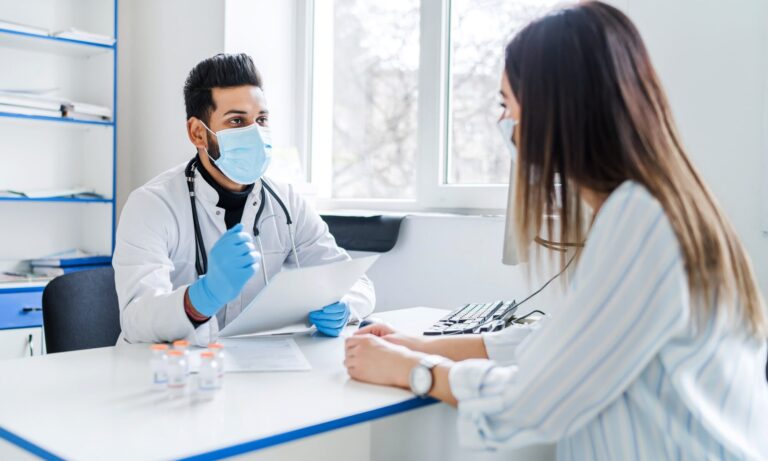
Today, we will be taking a look at the do’s and don’ts when it comes to preparing for health checks and medical tests, because the reliability and accuracy of test results rests mainly on the test subject themselves!
Health check-ups and tests are some of the most important appointments an individual can book. Not only are there specialised and targeted tests such as allergy tests and blood tests that can help you pinpoint problems, you can also reap the benefits of preventative appointments such as medical health checks that can spot conditions early and help manage health in the long-term.
Health checks help you find problems even before you start and are usually the first step towards better overall health. However, you have to prepare well for a health check. Make sure you don’t adversely influence the results by doing something you shouldn’t before the check itself.
Today, we will be looking at the do’s and don’ts when preparing for health checks and medical tests because the reliability and accuracy of test results rest mainly on the test subject themselves – that means you! So, what are the things to do and avoid before a health screening or medical/blood test? Read on below to find out:
Do’s when preparing for a health check/test
- HEALTH ASSESSMENT: For 99% of medical checks and tests, you will be advised to ensure you have not eaten anything for at least 8 hours before your appointment. There are some health check-ups that require you to fast for even longer, around 12 hours, so as not to affect the results of the check. If this isn’t the case, you will be asked to at least avoid salty or fatty foods for at least 24 hours before your exam – although avoidance for two or three days is even better for clearer results.
- There are also numerous studies and findings to suggest that you should try to get a good night’s sleep before conducting any medical check-ups and tests. This is because a lack of sleep can affect your blood pressure levels, causing irritation and stress, thus influencing the results of the check-up or test. A lack of sleep has been known to also affect your blood glucose levels which can be detrimental to blood tests. Try to get at least eight hours of sleep the night before your exam.
- BLOOD TESTS: Often, if you are under routine medication for other conditions, especially medicines such as beta-blockers, your doctor will advise you to stop taking said medications three days ahead of the test. This is so the doctor can get a better and truer outlook on your blood, minus the impact of your medication.
- ULTRASOUND CHECKS: If you are booked for an ultrasound, you should drink several glasses of water before your scan. This is because a full bladder can create a convenient path and the perfect conditions for ultrasonic waves during the scan. This is called an acoustic window. With sufficient water intake, your ultrasound check-up will go even smoother than usual.
- FULL BODY CHECK-UPS: One of the most overlooked do’s when preparing for a check-up or test is what you’re wearing. Make sure to wear comfortable, appropriate and easy-to-take-off dresses or clothes, especially if you are booked for a full body check-up. Making sure you take care of your attire will lead to a smoother and more comfortable appointment.
- URINE TEST: If you are going in to produce a urine sample for a test, you should drink a lot of water two hours before the test to help get a better and larger sample.
- ANY CHECK-UP OR TEST: If you are on regular medication or are currently working through a course of medication, make sure you take a list of your medications (both prescription an over the counter) to your examiner so they can update the records and keep them in mind when assessing your health and subsequent results.
- COLONOSCOPY: If you are booked for a colonoscopy, you will be asked to take a laxative the night before your test to ensure your appointment goes smoothly and is as comfortable as possible.
- SMEAR TEST: If you are getting towards the last few days of your menstruation, you should book a smear test. In fact, pap smears are ideally done 5-6 days after the last day of menstruation.
- TREADMILL TESTS: If you are taking a treadmill test, make sure to bring along a change of clothes and appropriate footwear to get the most efficient results and make sure the appointment goes smoothly.
- SEXUAL HEALTH TESTS: It is important to be sufficiently hydrated before doing a sexual health test or screening. This is so the accuracy of the urine results is not skewed. You should also hold your urine for at least 2 hours before the appointment.
- COVID TEST: If you are conducting a swab test to find a COVID infection, you need only make sure your nasal passages are clear. If you are conducting a T-Cell test, you must ensure you are hydrated to make the phlebotomy go as easily as possible.
Don’t when preparing for a health check/test
- HEALTH ASSESSMENTS: Before conducting a full-body health check-up or a blood test, make sure you are avoiding foods such as salt, sugar and laxative substances, as these have been proven to trigger and skew your results and lead you to make incorrect assumptions and decisions about your health. For instance, eating salty foods at least 24 hours before your check can lead to elevated blood pressure and triglyceride levels.
- You should also avoid exercising or strenuous physical activities before a health check-up, as this will raise your blood pressure and heart rate, thus affecting your results and skewing your health professional’s judgement of your health.
- BLOOD TESTS: If you are taking a blood test, you MUST ensure you avoid heavily processed foods, caffeinated drinks and alcohol from the night before the test or at least 12 hours before. These items can affect your blood test results and lead to incorrect conclusions, so make sure to put them aside for half a day.
- ULTRASOUND: Avoid urinating for at least an hour before your exam to ensure the check-up goes smoothly and the bladder is primed to provide a convenient path for ultrasound waves.
- MAMMOGRAM: Mammograms are very sensitive x-rays of the breasts and can be affected by various things. So, make sure you don’t use perfumes, deodorants, powder or creams under the arms or on the chest as it can interfere with the test quality and, thus, the results. You should also avoid mammograms during your menstrual period as the breast tenses up during this time and can also interfere with results.
- SMEAR TEST: If you are booked in for a smear test, make sure to avoid the following for at least 24 hours before your appointment: sex, tampons, vaginal creams and any medications such as vaginal suppositories.
- URINE, STOOL AND SMEAR TESTS: If you are within 7 days of either side of your menstrual period, you should avoid doing urine, stool or smear test. This is because the presence of blood in these tests would lead to inaccurate results.
- COVID TEST: Even though this is a blood test, it works differently because it does not measure your blood levels but rather the presence of antibodies in your blood. This means you don’t need to fast for this test.
Many of the dos and don’ts for the aforementioned health checks and tests are conditional based on the individual and the test itself. So, make sure you have clarified everything you need to do and need to avoid with your medical practitioner when booking the appointment.


